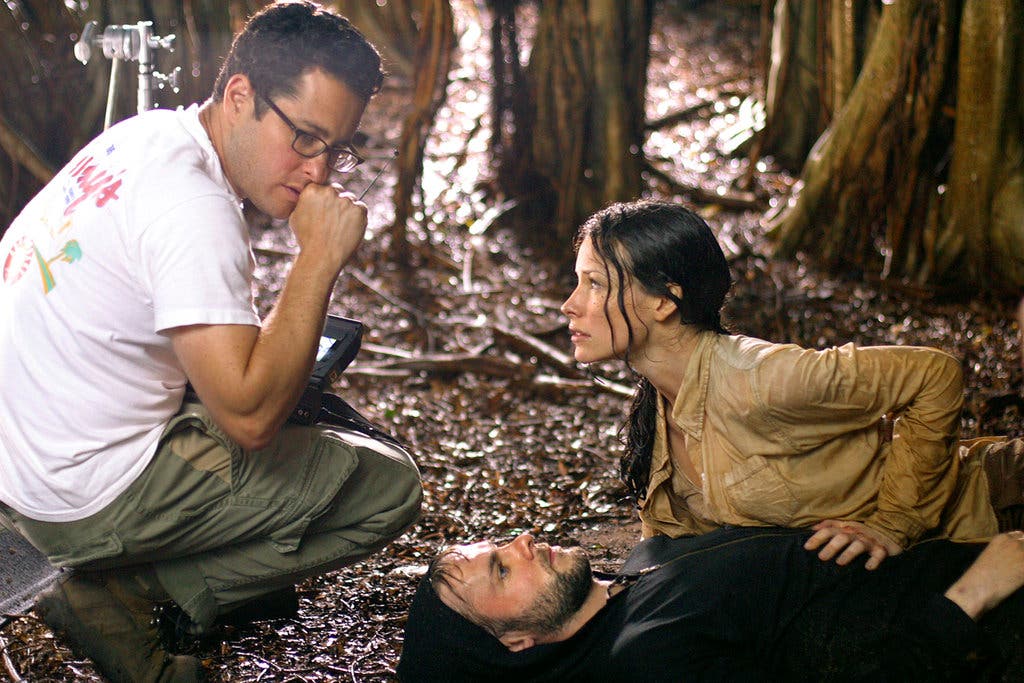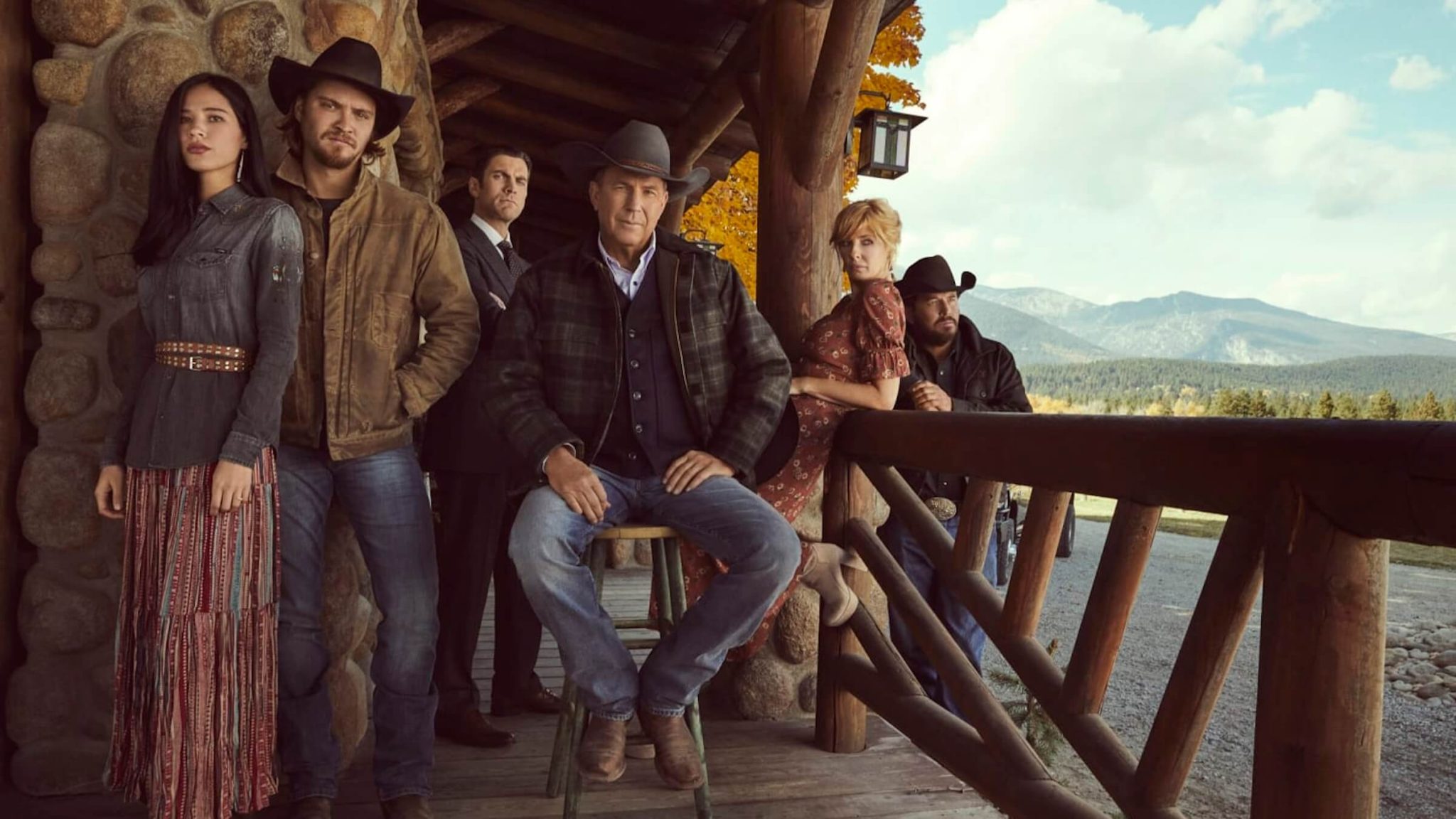How to Become a Showrunner

Being a showrunner for a television series is one of the most unique jobs across all industries. It's difficult to find a comparable position outside the Film/TV industry because it is both a creative and managerial occupation.
What does a showrunner do, exactly? How involved are they in the writing process? How do you become one and how much do they get paid?
Writers who aspire to head their own show one day no doubt have some if not all of these questions (and many more), but we've got some answers!
What Is a Showrunner?
The Showrunner is the individual that has the final say in all aspects of the series.
Some showrunners are the show's original creator, while others are brought in by a studio or network to take on the duties.
They oversee all aspects of series, including:
- Scripts
- Staff hiring
- Casting
- Budget
- Schedule
While the producers, story editors, script coordinators, and staff writers (more on that below) do much of the leg work, the Showrunner calls the shots and makes the final decisions.
Creative Aspect
The Showrunner is the visionary. They have a dedicated vision for the series and the characters. Their support group within the writers' room exists to make that vision come to light through the show bible, pilot episode script, and the episode scripts that follow.
They also represent and communicate the show's creative direction to the studio and network executives that are paying for the development and production.
When it comes to production, they are in creative control of that process as well. Where feature films are a director's medium, television is a showrunner's medium.
Managerial Aspect
The Showrunner is also the boss. They are charged with the responsibilities of taking the budget and deadline demands from the studio and network and building a team and schedule that can work within those confines to deliver scripts — and then get those scripts produced.
Showrunners budget, hire, and fire — like all good managers.

Showrunners Jordan Peele ('Lovecraft Country), Shonda Rhimes ('Grey's Anatomy'), Dan Levy ('Schitts Creek'), Lisa Joy ('Westworld')
Do Showrunners Still Write Scripts?
It depends on the scenario.
Many showrunners make the jump from series writer to showrunner by creating and pitching original TV series concepts (or adaptations of intellectual property).
Others are brought in to take on a concept created by an executive.
Case Study: The Walking Dead
Some showrunners are brought in to adapt intellectual property that the studio and network have acquired.
After AMC bought the adaptation rights to The Walking Dead comic book series, they hired feature writer/director Frank Darabont and feature producer Gale Anne Hurd to act as executive producers and co-showrunners.
Darabont was attached to write and direct the pilot. The entire series was pre-ordered based just on the strength of the source material, the television scripts, and Darabont's involvement. He wrote a few of the first season episodes.
Case Study: Lost
J.J. Abrams was the showrunner behind the successful and acclaimed series Lost. He made a name for himself with his feature scripts and running the series Alias.
The series was originally conceived by the head of ABC at the time, Lloyd Braun. In 2003, he was on vacation in Hawaii and imagined a cross between Cast Away and the popular reality show Survivor.
Braun pitched his ideas to the network, and senior vice president Thom Sherman saw potential. He ordered an initial script from Spelling Television, which hired Jeffrey Lieber. Lieber pitched his take to ABC, calling it Nowhere.
Braun wasn't happy with the eventual script by Lieber. After a subsequent rewrite, he contacted J. J. Abrams, who had developed Alias for ABC, and with that clout, he was hired to write a new pilot script. The series was renamed Lost.
Abrams was initially hesitant to give the concept a supernatural twist, but he warmed to the idea as long as he had a writing partner. Damon Lindelof was hired.
Abrams only wrote 3 episodes of the series — all within that first season.

J.J. Abrams on the set of 'Lost'
Showrunners Can't Write As Much
As you can see, showrunners are a bit busy. They usually are part of the direct writing process early on, but they eventually have to put their trust in the writers' room. Their creative efforts encompass the broad strokes of each season's story and character arcs.
Since they oversee everything and make all final decisions on the creative aspects of the series, their creative stamp is very evident — despite not writing all of the scripts.
It always starts with being an amazing writer. That's where every path to the showrunner job begins.
The Road to Being a Showrunner
The fantasy of selling your TV pilot script and being handed the reins of a network TV series your first time out isn't what you should be expecting. Any example to the contrary is an anomaly. With that in mind, here's an example of where that did happen.
Case Study: Girls
Creator of HBO's successful and acclaimed series Girls, Lena Dunham, had gained some success with her 2010 second indie feature, Tiny Furniture. She wrote, directed, and starred in the film, which received positive reviews at festivals and awards attention, including Best Narrative Feature at SXSW and Best First Screenplay at the 2010 Independent Spirit Awards.

Lena Dunham
Writer/Director/Producer Judd Apatow was drawn to Dunham's imagination after watching Tiny Furniture. He and HBO agreed to help Dunham develop a series concept for HBO with Apatow attached as Executive Producer.
Dunham was given much of the creative control. Despite never having worked on a series before, she was given the Showrunner position, along with Jennifer Konner. Apatow executive produced under his Apatow Productions label.
She wrote or co-wrote all ten episodes of the first season and directed five, including the pilot. She also wrote many episodes throughout the series run.
While she did manage to become a showrunner for her first TV pilot sold, HBO had Konner and Apatow there for her as support.
The Steps Most Need to Take
Beyond anomalies (which you can hope for but should never expect), becoming a showrunner requires years of experience. You need to get to a place in your career where you can manage a room full of writers and deal with studios, networks, agents, lawyers, budgets, etc.
What steps can you take to achieve that?
Look to the writers' room for your ladder to climb. It all starts with writing great scripts, obviously, so let's assume that you've gotten to that point.
The next step is to utilize those spec pilot scripts to garner attention. You accomplish that by:
- Entering your specs into major and well-connected contests, competitions, and fellowships.
- Networking and querying industry contacts.
- Cold querying industry contacts.
- Waiting and seeing if anyone responds.
Then you need to get yourself into a writers' room of a series. That's where you will learn the game and do your best to climb the ladder.
Here's a general breakdown of the ladder you need to climb and the steps from the bottom to the top you'll need to take to earn enough clout to become a showrunner.
Step #1: Writers' PAs
The Privates and Grunts of the show. They don't write. They don't take notes. Instead, they run most of the office by answering phone calls and working as gofers. PAs get coffee, order lunch, stock the kitchen, organize the writers' room after the whirlwind of the workday, and handle any basic tasks that don't involve any writing.
Step #2: Writers' Assistants
The Private First Class of the show. Assistants are tasked with taking notes throughout the brainstorming sessions of the Staff Writers and Story Editors. As those people break story, the Assistants are there to take notes and organize all of the ideas and concepts.
They will also be asked to proofread the scripts as they merge the notes and staff writing pages into a cohesive formatted script.
Assistants may also be asked to handle any necessary research needed before, during, or after the writers' room tries to break story on the script.
Step #3: Staff Writer
The Corporals of the show. You could argue that Staff Writers are more like Privates — doing the basic grunt work of the writing — but within the hierarchy of the writers' room, they're not the lowest on the totem pole (see above).
Staff Writers are there to develop and break story. They work with other Staff Writers to do so under the direction and authority of the above positions.
A majority of the time, they'll never get credit for their participation — at least not until they begin to work their way into a Story Editor position.
The more intimidating part of being a Staff Writer is that they are always the first to go when budget cuts or writing staff shakeups happen.
And as a staff writer, you may have supplied key story or character elements to an eventual script, but if you’re not actually the assigned writer to write the script for that episode, your work will be uncredited, and your pay will consist of your weekly salary.

'Empire' Writers Room
Step #4: Story Editors
The Sergeants of the show. Story editors are writers that have been with the show for a while and have taken on a leadership position within the room. They are next-level staff writers that benefit from WGA-stipulated pay and credit guarantees. They work on salary and get paid for individual scripts.
The biggest difference between a Story Editor and Staff Writer — beyond better pay — is that Story Editors are guaranteed to be credited for at least a single episode each season.
Step #5 Co-Producers
The Lieutenants of the show. Co-producers answer to the producers and work much as Co-Executive Producers do with Showrunners — they handle various delegated duties that a producer passes down to them.
They are still writers but are slowly moving their way up the totem pole as they are battle-tested with additional duties and decision-making that staff writers are not responsible for.
Step #6: Producers
The Captains of the show. Producers are seasoned writers within the writers' room. They've been promoted by accepting additional responsibilities beyond writing scripts. They'll have a say in casting, production, and the creative direction of the show. Staff writers will answer to them.
Step #7: Supervising Producers
The Colonels of the show. If you're a staff writer, this is the highest position to shoot for before you hit the big league of becoming an Executive Producer.
Supervising Producers are upper-level writers that handle extensive responsibilities, usually working with the writing staff directly through the many hours of story development, breaking story, and actual writing of the episodes.
In short, it's a more hands-on leadership position. You're in charge of the room when the Showrunner and EPs aren't available.
Step #8: Co-Executive Producers
The Generals of the show. Any non-showrunner Executive Producer works as the Showrunner's Number One. They are the second in charge of the series and are usually the last to read the final scripts before they are sent to the Showrunner for final approval.
Depending upon the series, the Co-Executive Producer can also give final clearance for script drafts — in place of the Showrunner. Sometimes Showrunners delegate the power of decision-making to their Co-Executive Producers if they are working on multiple projects. More significant broad-stroke decisions will always fall on the Showrunner's shoulders, but the Co-Executive Producers are there to take on as much as needed.
Step #9: Showrunner/Executive Producer
The Admirals of the show. You hopefully have an idea of what a showrunner does. It's clearly the top of the ladder when it comes to television shows. There's no single path to the position, but it usually requires years of hard work, development, on-the-job training, excellent collaborative skills, and outstanding leadership capabilities.
How Much Do Showrunners Make?
We knew that would be the follow-up question. Once again, it depends. And it mostly depends on your stature in the industry.
Showrunners usually make a great deal of money. These days, nine-figure deals are common for the top-tier showrunners and Hollywood prospects from both the film and television industry.
According to Parade, prolific showrunner Shonda Rhimes earns $15-$20 million at ABC for all shows she runs.
David Benioff and D.B. Weiss earned between $100,000 and $300,000 per episode for their work on Game of Thrones.
But if you're a first-time showrunner, you can expect to earn as "low" as between $30,000 and $40,000 per episode.

There's no single path to the Showrunner position in Hollywood. A majority of the time, it takes years to work your way up through the writers' room circuit. And sometimes, you need to work on multiple shows before earning your "wings" as a potential showrunner.
Regardless of what path you find yourself on, it always starts with being an amazing writer. That's where every path to the showrunner job begins.
Ken Miyamoto has worked in the film industry for nearly two decades, most notably as a studio liaison for Sony Studios and then as a script reader and story analyst for Sony Pictures.
He has many studio meetings under his belt as a produced screenwriter, meeting with the likes of Sony, Dreamworks, Universal, Disney, Warner Brothers, as well as many production and management companies. He has had a previous development deal with Lionsgate, as well as multiple writing assignments, including the produced miniseries Blackout, starring Anne Heche, Sean Patrick Flanery, Billy Zane, James Brolin, Haylie Duff, Brian Bloom, Eric La Salle, and Bruce Boxleitner, and the feature thriller Hunter’s Creed starring Duane “Dog the Bounty Hunter” Chapman, Wesley Truman Daniel, Mickey O’Sullivan, John Victor Allen, and James Errico. Follow Ken on Twitter @KenMovies
For all the latest ScreenCraft news and updates, follow us on Twitter, Facebook, and Instagram.
Get Our Screenwriting Newsletter!
Get weekly writing inspiration delivered to your inbox - including industry news, popular articles, and more!




























